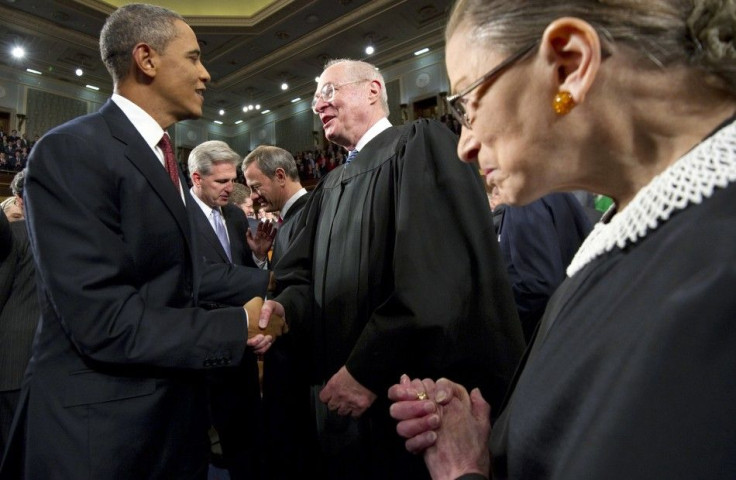Health Care Case: Justice Kennedy Lives Up To Swing-Vote Reputation

WASHINGTON -- Befitting his reputation on the U.S. Supreme Court, Justice Anthony Kennedy could be the deciding vote on the health care law -- and it doesn't look good for President Barack Obama's administration.
The questions Kennedy posed to lawyers arguing about the mandate that Americans carry insurance revealed skepticism about the White House's justification for the Patient Protection and Affordable Care Act of 2010.
At issue with the so-called individual mandate is whether the Commerce Clause of the Constitution allows Congress to compel the purchase of medical insurance, so that a person is covered when he gets a costly or unexpected bill for services. Otherwise, the cost could be shifted to others throughout the country in the form of higher insurance-policy premiums.
Kennedy was seen as a potential vote to uphold the mandate, along with Chief Justice John Roberts, who votes with the court's conservative wing.
White House lawyers tried to appeal to conservative Justice Antonin Scalia, but that approach could fall flat if Tuesday's oral arguments are an indication.
But if Roberts holds true to past cases and follows Scalia, Kennedy will be the deciding vote that determines if Congress acted within its broad authority under the Commerce Clause.
Kennedy: Law Would Impose 'Fundamental' Change
During oral arguments, Kennedy characterized the health care law as one that institutes a fundamental change in the relationship between Americans and their government.
Do you not have a heavy burden to show authorization under the Constitution? he asked Solicitor General Donald Verrilli, the administration's Supreme Court lawyer.
Verrilli argued that the mandate regulates the ways Americans pay for health care. Congress, he said, wouldn't be able to force someone to buy insurance -- or any good or service -- as a means of stimulating the nation's economy.
But why not? Kennedy probed. If Congress says that the interstate commerce is affected, isn't, according to your view, that the end of the analysis?
Despite his and other justices' tough questions, Kennedy seemed to acknowledge the problem uninsured Americans pose to the health care system. He asked lawyer Paul Clement, representing the 26 states challenging the Affordable Care Act, whether the refusal of some individuals to join the market by buying insurance would put them outside the scope of regulation.
But they are in the market and in a sense they are creating a risk that the market must account for, Kennedy said.
--
© Copyright IBTimes 2024. All rights reserved.





















